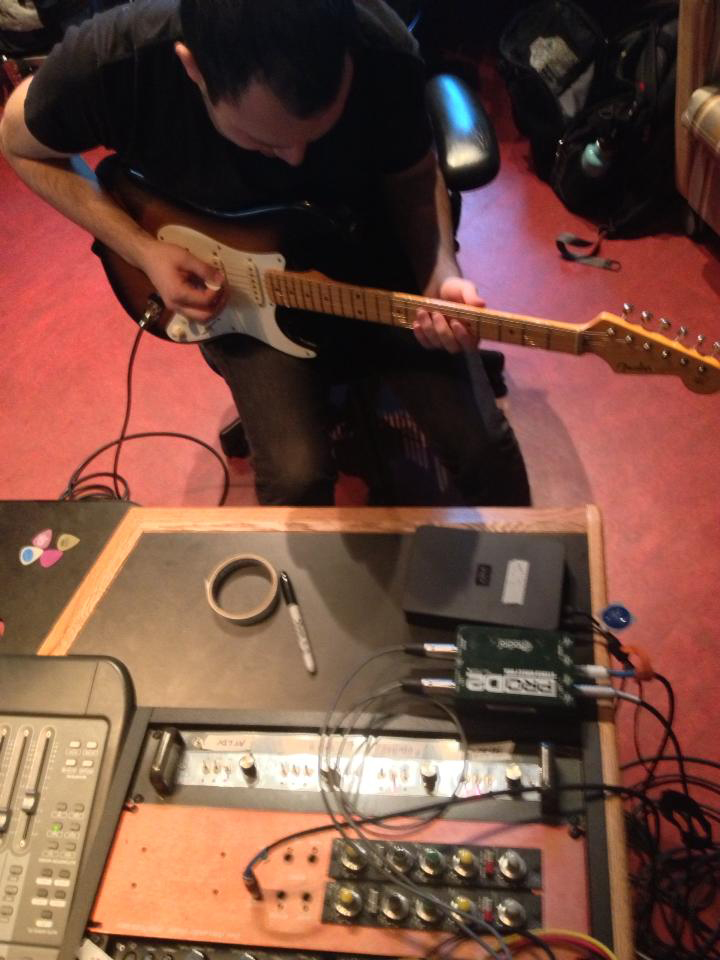Playing for Yourself Versus Playing for Your Audience

Sometimes there's a difference between the music you like to play and the music you listen to.
This is where some self-awareness comes in handy.
Playing music that excites you is important, but so is connecting with an audience by making meaningful music, whether that audience is 200 people or a recording device. If you’re making music that you’d probably skip over on your iPod, something isn’t right.
A lot of the time, it comes down to over-playing. This is where that old saying, “You have to play for the song," comes in. Certain genres lend themselves to little guitar noodles throughout the song; others require a steady, repetitive part.
Sometimes even sub-genres are different. Brad Paisley’s style of country and the late Johnny Cash’s style of country require two radically different approaches to the guitar. It’s up to the player to set aside his/her own ego and listen for what would contribute to the vibe of the song.
Unfortunately, that sometimes can be boring. A lot of players might think, “I didn’t spend eight hours a day practicing so I could play rhythm for ‘Hallelujah’ for the rest of my life." Too many times people might respond, “Well, if it’s your meal ticket, shut up."
While that can be true, it’s not the only option, because there are many angles to critique your own playing. A simple slow song usually gives you the best chance to experiment with tone and chord voicings.
Get The Pick Newsletter
All the latest guitar news, interviews, lessons, reviews, deals and more, direct to your inbox!
Which pickup blends best with the other instruments? Does switching pickups for the verse and chorus make sense? Are you using a pick, fingerpicking or hybrid picking? Are you playing the standard beginner chords or experimenting? Could the arrangement be more exciting? The questions and possible answers are many.
But it’s fun to play fast, isn’t it? Fine, but it has to be tasteful, exciting and still lend itself to the song. One of the masters of this is Tommy Emmanuel. The beginning of his version of “Somewhere Over the Rainbow” ...
... is super-difficult and gets very shred-y. This is a great example of playing for himself as well as the audience.
It’s 1. An unusual and beautiful technique that 2. sets up and ends the song nicely and 3. best represents a rainbow. Just because you can’t do your sextuplet sweeps and three-note-per-string scale runs doesn’t mean you can’t challenge your muscles. You also have to challenge your — and the listener’s — mind.
If you have comments, questions or angry remarks, feel free to leave them in the comments section or reach out to me on YouTube.
Elliott Klein is a New York City-based guitarist/singer/songwriter who plays in Bright and Loud, Party Lights and many more.
"Upgrading from your entry-level acoustic opens the door to an entirely new world of tonewoods, body shapes, and brands": 6 signs it's time to upgrade from your first acoustic guitar
"I'm past my prime": 5 common excuses for not learning the guitar – and 5 body and mind-boosting reasons you should









